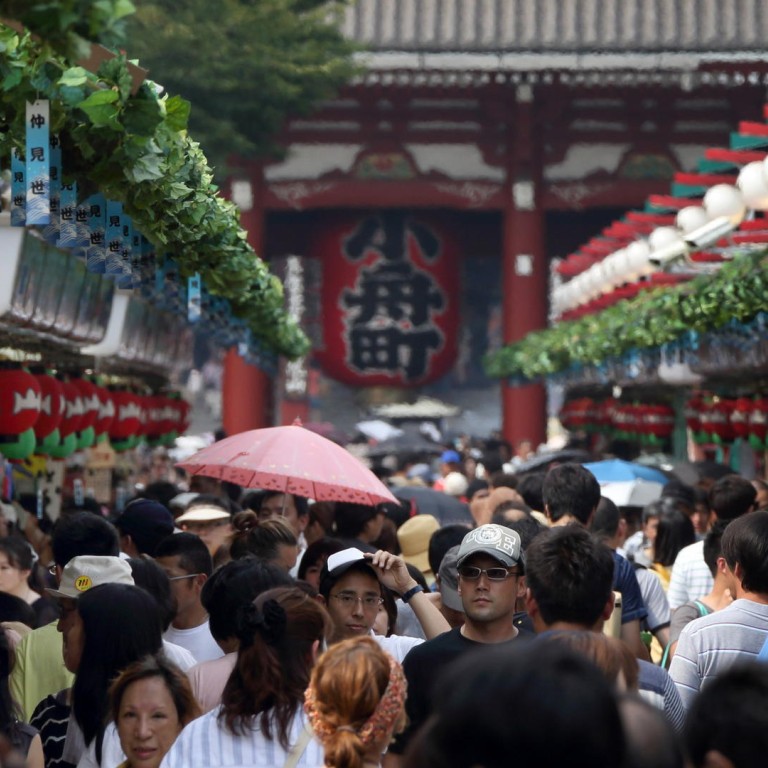
Japan growth slows in Q2, sales tax hike looms
Economy expands for third consecutive period but fails to meet forecast as government debt soars and capital expenditure shows surprise fall
Japan's economy grew at a slower-than-expected rate in the second quarter, offering ammunition to those seeking to delay a scheduled sales tax increase even as government debt has risen past 1,000 trillion yen (HK$80.3 trillion).
Capital expenditure unexpectedly fell for a sixth consecutive quarter, a sign that companies are yet to boost spending despite the feel-good mood generated by Prime Minister Shinzo Abe's reflationary policies over the first half of the year.
The world's third-largest economy grew an annualised 2.6 per cent between April and June, a third straight quarter of expansion but below a forecast of 3.6 per cent growth and a revised 3.8 per cent rate in the first quarter.
"Private consumption came out stronger-than-expected but capital spending and inventory disappointed," said Takeshi Minami, the chief economist at Norinchukin Research Institute.
"Growth above 2 per cent is still considered high, so it wouldn't lead to a complete postponement of the sales tax rise. But the government could make tax rises more incremental, without delaying the timing."
The stock market fell to a six-week low on the weaker growth data, with analysts saying confidence was hit by the combination of weak capital spending and the expected sales tax increase affecting consumption.
Abe was elected in December last year on a platform of aggressive fiscal and monetary stimulus to revive the economy.
An immediate impact of "Abenomics" was a sharp weakening of the yen, a surge in share prices and exceptionally strong personal consumption, but there are questions over his commitment to the third leg - structural reform.
As part of efforts to curb its debt, which is about double the size of its GDP, Japan is to raise its 5 per cent sales tax rate to 8 per cent in April next year and then to 10 per cent in October 2015.
Public debt exceeded 1,000 trillion yen for the first time in June, Finance Ministry data shows, highlighting the need for higher taxes or other new revenue.
But the GDP data may weaken the case for the tax rise, and sources have said Abe is worried it may dampen spending and delay Japan's escape from 15 years of deflation.
"Growth is lower than I expected, so you cannot say that the conditions are appropriate to raise taxes as scheduled," said Etsuro Honda, a professor at Shizuoka University and an adviser to Abe.
On a quarter-to-quarter basis, the economy grew 0.6 per cent in the June quarter, according to the data released by the Cabinet Office yesterday. External demand added 0.2 percentage point to growth, while domestic demand contributed 0.5 point.
Private consumption rose 0.8 per cent, more than a median market forecast of a 0.5 per cent increase, on robust spending on food, travel and consumer electronics.
Capital expenditure slid 0.1 per cent, much weaker than a median market forecast for a 0.7 per cent increase and marking the sixth quarter of decline.

